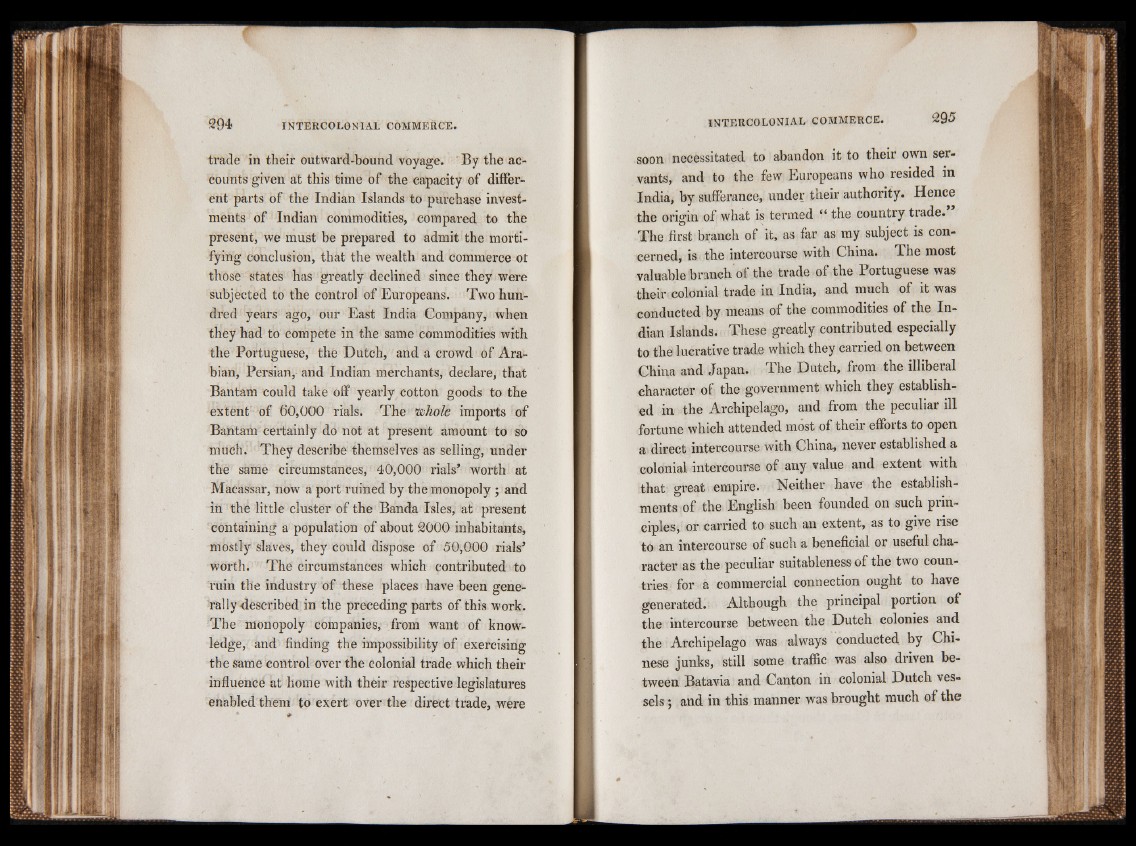
trade in their outward-bound voyage. By the accounts
given at this time of the capacity of different
parts of the Indian Islands to purchase investments
of Indian commodities, compared to the
present, we must be prepared to admit the mortifying
conclusion, that the wealth and commerce ot
those states has greatly declined since they were
subjected to the control of Europeans. Two hundred
years ago, our East India Company, when
they had to compete in the same commodities with
the Portuguese, the Dutch, and a crowd of Arabian,
Persian, and Indian merchants, declare, that
Bantam could take off yearly cotton goods to the
extent of 60,000 rials. The ’whole imports of
Bantam certainly do not at present amount to so
much. They describe themselves as selling, under
the same circumstances, 40,000 rials’ worth at
Macassar, now7 a port ruined by the monopoly ; and
in the little cluster of the Banda Isles, at present
containing a population of about 2000 inhabitants,
mostly slaves, they could dispose of 50,000 rials’
worth. The circumstances which contributed to
ruin the industry of these places have been generally
-described in the preceding parts of this work.
The monopoly companies, from want of knowledge,
and finding the impossibility of exercising
the same control over the colonial trade which their
influence at home with their respective legislatures
enabled them to exert over the direct trade, were
soon necessitated to abandon it to their own servants,
and to the few Europeans who resided in
India, by sufferance, under their authority. Hence
the origin of what is termed “ the country trade.
The first branch of it, as far as my subject is concerned,
is the intercourse with China. The most
valuable branch of the trade of the Portuguese was
their colonial trade in India, and much of it was
conducted by means of the commodities of the Indian
Islands. These greatly contributed especially
to the lucrative trade which they carried on between
China and Japan. The Dutch, from the illiberal
character of the government which they established
m the Archipelago, and from the peculiar ill
fortune which attended most of their efforts to open
a direct intercourse with China, never established a
colonial intercourse of any value and extent with
that great empire. Neither have the establishments
of the English been founded on such principles,
or carried to such an extent, as to give rise
to an intercourse of such a beneficial or useful character
as the peculiar suitableness of the two countries
for a commercial connection ought to have
generated. Although the principal portion of
the intercourse between the Dutch colonies and
the Archipelago was always conducted by Chinese
junks, still some traffic was also driven between
Batavia and Canton in colonial Dutch vessels
; and in this manner was brought much of the